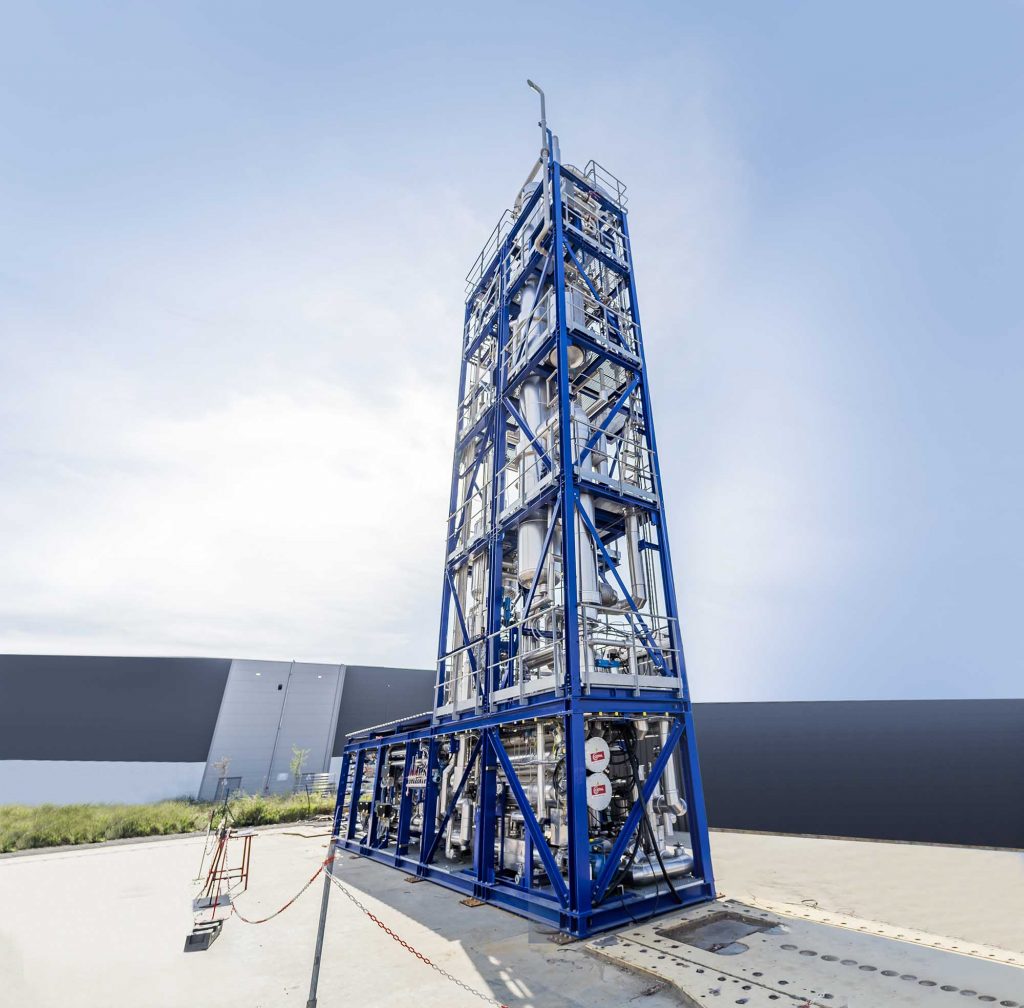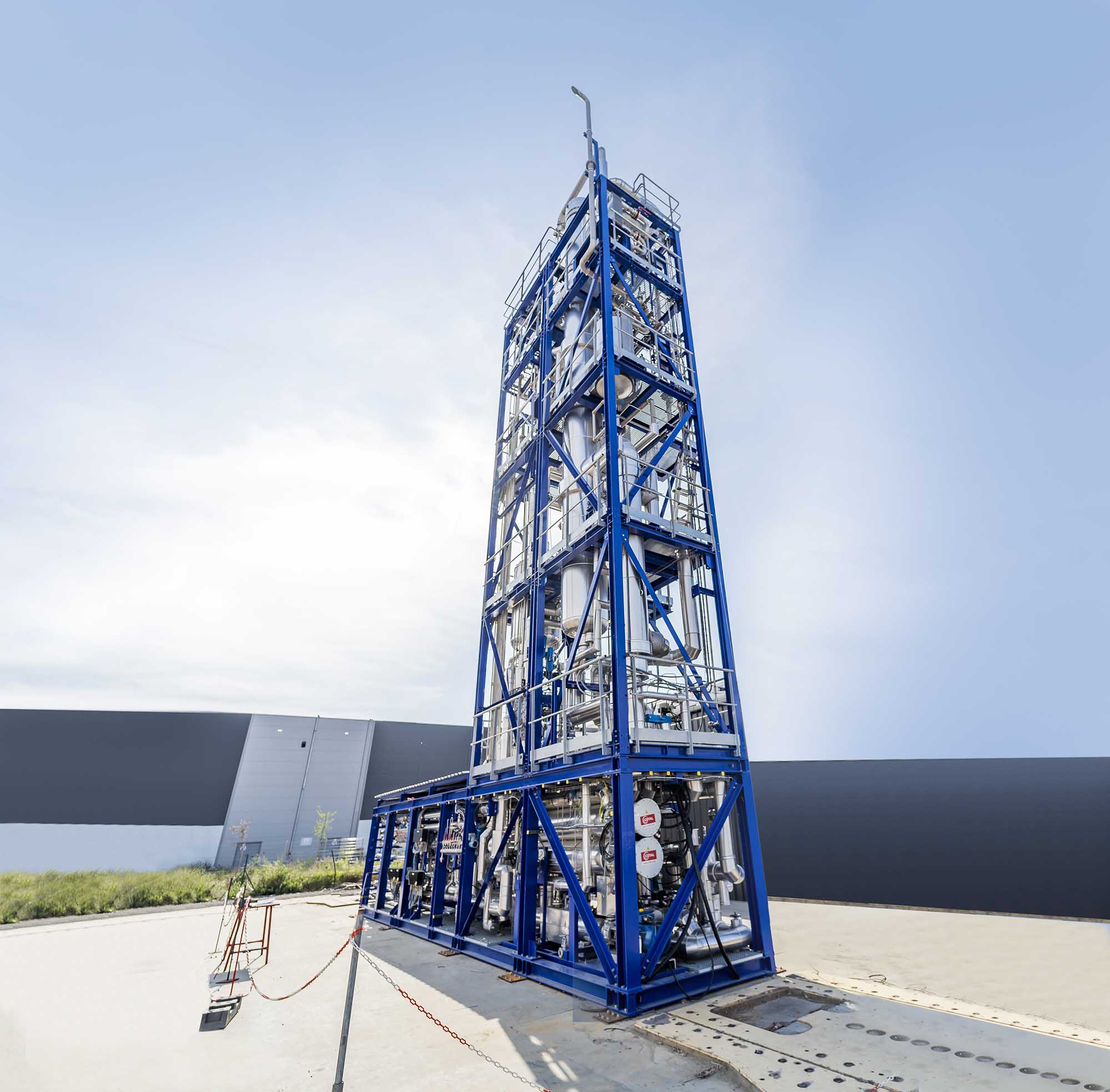Ecoslops is the cleantech that brings oil into the circular economy thanks to an innovative technology allowing the company to upgrade oil residues and used lub oil into new fuels and light bitumen. The solution proposed by Ecoslops is based on a unique micro-refining industrial process that transforms these residues into commercial products that meet international standards. Ecoslops offers an economic and more ecological solution to port infrastructure, waste collectors and ship-owners through its processing plants.
Interview with Vincent Favier, CEO of Ecoslops.
Easy Engineering: What are the main areas of activity of the company?
Vincent Favier: Our technologies, designed for the circular economy, process oil residues and used lube oil into fuels and soft bitumen.
Based on a unique industrial process of micro-refining, Ecoslops transforms hydrocarbon residues into second-generation commercial products.
Ecoslops’ technology and expertise in waste regeneration place hydrocarbons in a special circular economy, supporting the energy transition of hydrocarbon products and optimization of resources.
The Ecoslops business model helps to improve the material footprint and environmental impact of producing the main petroleum products.
E.E: What’s the news about new products?
V.F: While international regulations require the collection and processing of hydrocarbon residues, implementing these installations is generally difficult. The equipment and resources needed represent a substantial cost and make it difficult to generate a profit. The Scarabox, a low-carbon production, turnkey recovery solution, recycles this waste and revalorizes it into high-quality fuels. It is a guarantee that this hazardous waste will no longer be discharged into nature due to the lack of any suitable solution, but will effectively be recycled in all transparency for the benefit of everyone and the environment.
To facilitate access to its expertise and accelerate the energy transition in areas that are remote or that have smaller volumes for collection, Ecoslops has designed a containerized unit that is economically beneficial, with several objectives:
- To be cost-effective with small volumes
- To operate the unit with local staff
- To be installed on a small site as close to the waste feedstock as possible
- To undergo a fast authorization process
- To process used motor oils as well as maritime slops and sludges
- To offer a turnkey solution, from feasibilities studies to technical assistance over 5 years and more
E.E: What are the ranges of products?
V.F: There are 2 Ecoslops recycling solutions adapted to the quantity of waste to be treated:
- The P2R, to treat up to 30,000 tons of hydrocarbons dehydrated residues / year
- The Scarabox, to treat up to 7,000 tons of hydrocarbon residues (yc used lube oil)
Ecoslops also sells the fuels from its production. We offer a range of special light fuels, naphtha, gasoil, industrial heavy fuel, and soft bitumen recycled at our units in Europe.

E.E: At what stage is the market where you are currently active?
V.F:
- For the Scarabox (recycling of used lub oil), the market is pretty unmature
- Existing solutions are usually rudimental and no innovation was made in the last 30 years
- Security and product quality are poor and therefore we bring a real innovation to the market
E.E: What can you tell us about market trends?
V.F: All over the world and not only in the most developed countries, government, people and companies are practically looking for adequate solution for pollution prevention and circular economy:
- Being able to transform a hazardous waste into an economic opportunity
- Technology and innovation are the two levers for such challenges
E.E: What are the most innovative products marketed?
V.F: Our Scarabox solution is by far the most advanced and standards compliant solution
E.E: What estimations do you have for 2023?
V.F: We intend to sell another Scarabox in 2023 on top of the first one (Cameroon) and develop a large pipeline for the future.

